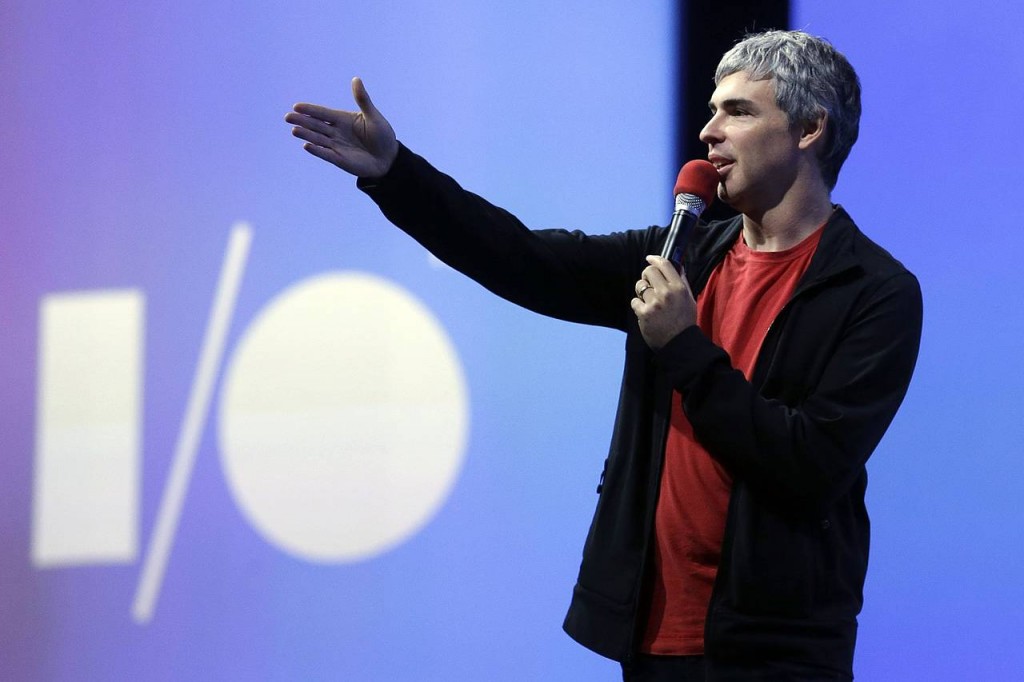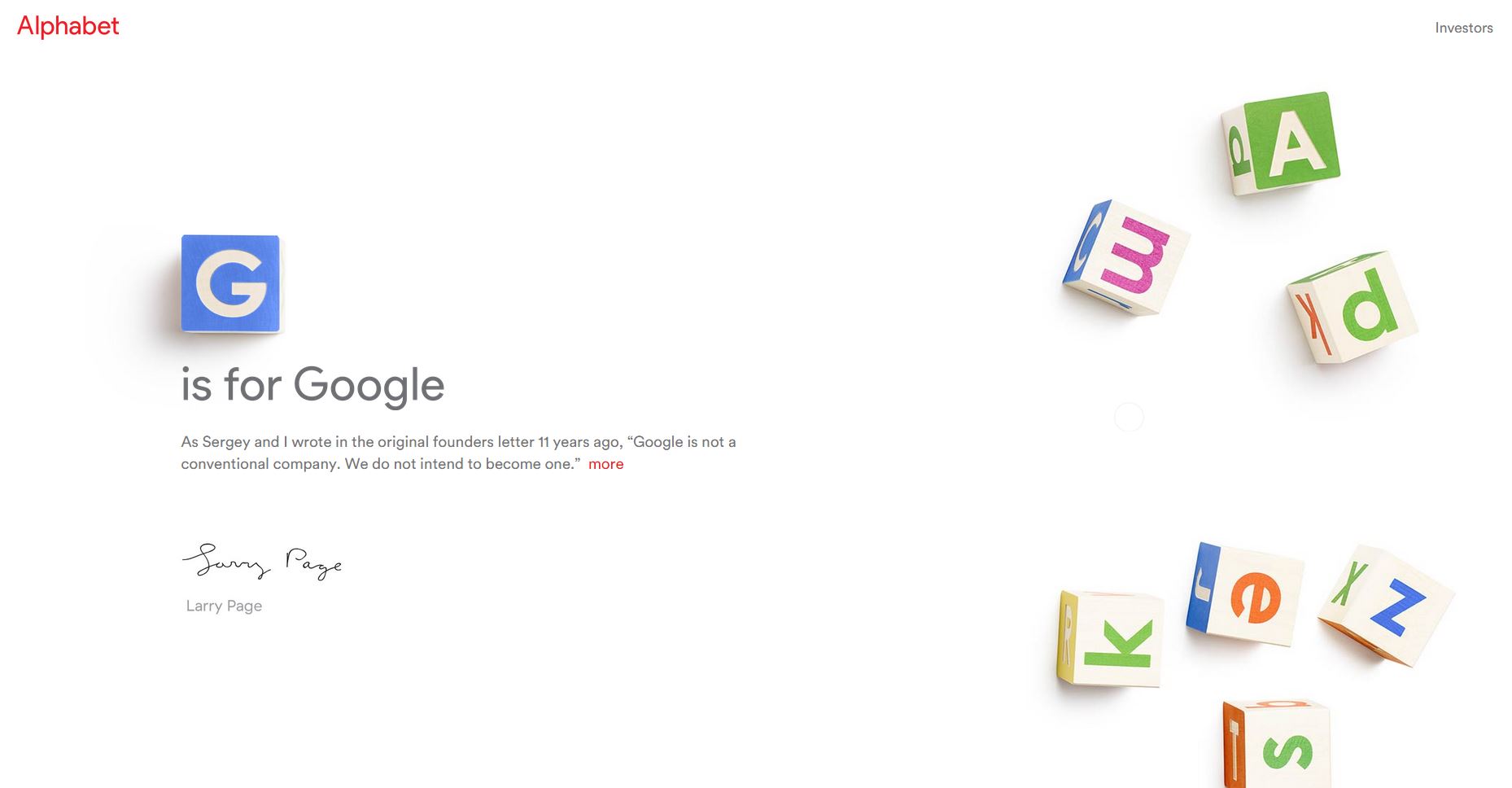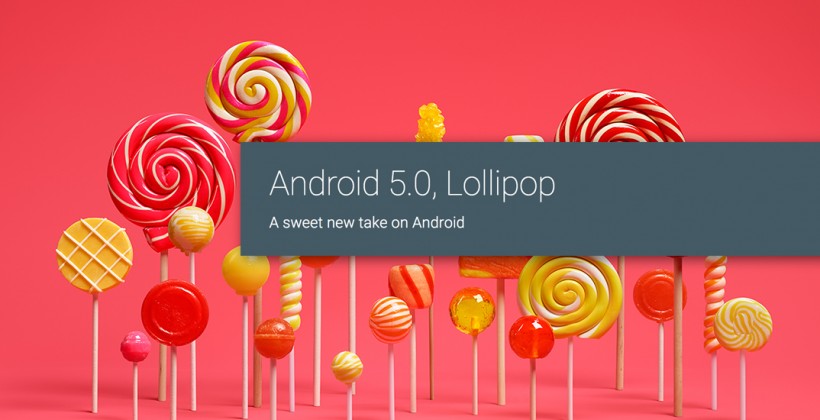In a surprise move, Google CEO Larry Page and co-founder Sergey Brin has announced that the tech giant is restructuring itself under a new umbrella company called Alphabet. Google will now become a subsidiary of Alphabet with a new CEO at the helm of affairs: India-born Google executive Sundar Pichai.
Larry Page will now be the CEO of Alphabet, a new “collection of companies” that includes Google, Google X, Life Sciences, Nest, and Calico. Sergey Brin will become president of Alphabet and Eric Schmidt will be its executive chairman.
Google, by far, is Alphabet’s largest entity. It will still encompass the businesses that people typically associate with the brand, such as the Android and Chrome operating systems, YouTube and search.
The restricting has been necessary as Google expands and diversifies into areas that has little to do with the internet and search, like home automation (Nest), broadband services (Fiber), and Google’s effort to extend human life (Calico).
There will also be two financial businesses: Google Ventures, the venture capital arm, and Capital, which invests in private equity deals. Google X, which is the company’s experimental laboratory, will be run separately by Brin.
Over the last decade, Google has religiously expanded its portfolio of products beyond the search engine that made the company the juggernaut that it is today. Its search and advertising business is still the most dominant in the world, making more than $50 billion a year. But as the Internet evolves, Page has been looking to where future revenue streams will come from. The company has made big bets on everything from smartphones to wearable devices to driverless cars.
Alphabet’s new structure is similar to Berkshire Hathaway, Warren Buffett’s massive empire that has a portfolio of disparate businesses that specialize in everything from real estate to underwear. It also gives Page the opportunity to step back from the day-to-day drudgery and focus on the bigger picture.
“I feel very fortunate to have someone as talented as he is to run the slightly slimmed-down Google and this frees up time for me to continue to scale our aspirations,” wrote Page in a blog post. [blockquote type=”left”]”Alphabet is mostly a collection of companies. The largest of which, of course, is Google. This newer Google is a bit slimmed down, with the companies that are pretty far afield of our main Internet products contained in Alphabet instead. What do we mean by far afield? Good examples are our health efforts: Life Sciences (that works on the glucose-sensing contact lens), and Calico (focused on longevity). Fundamentally, we believe this allows us more management scale, as we can run things independently that aren’t very related. Alphabet is about businesses prospering through strong leaders and independence. In general, our model is to have a strong CEO who runs each business, with Sergey and me in service to them as needed. We will rigorously handle capital allocation and work to make sure each business is executing well. We’ll also make sure we have a great CEO for each business, and we’ll determine their compensation. In addition, with this new structure we plan to implement segment reporting for our Q4 results, where Google financials will be provided separately than those for the rest of Alphabet businesses as a whole.”[/blockquote]
According to the post, the Google founders chose the name Alphabet “because it means a collection of letters that represent language, one of humanity’s most important innovations.”
Alphabet Inc. will replace Google Inc. as the publicly traded entity, though the company will continue to trade under its familiar tickers GOOG and GOOGL. Investors reacted positively to the news, sending the stock up more than 6 percent in after-hours trading.




